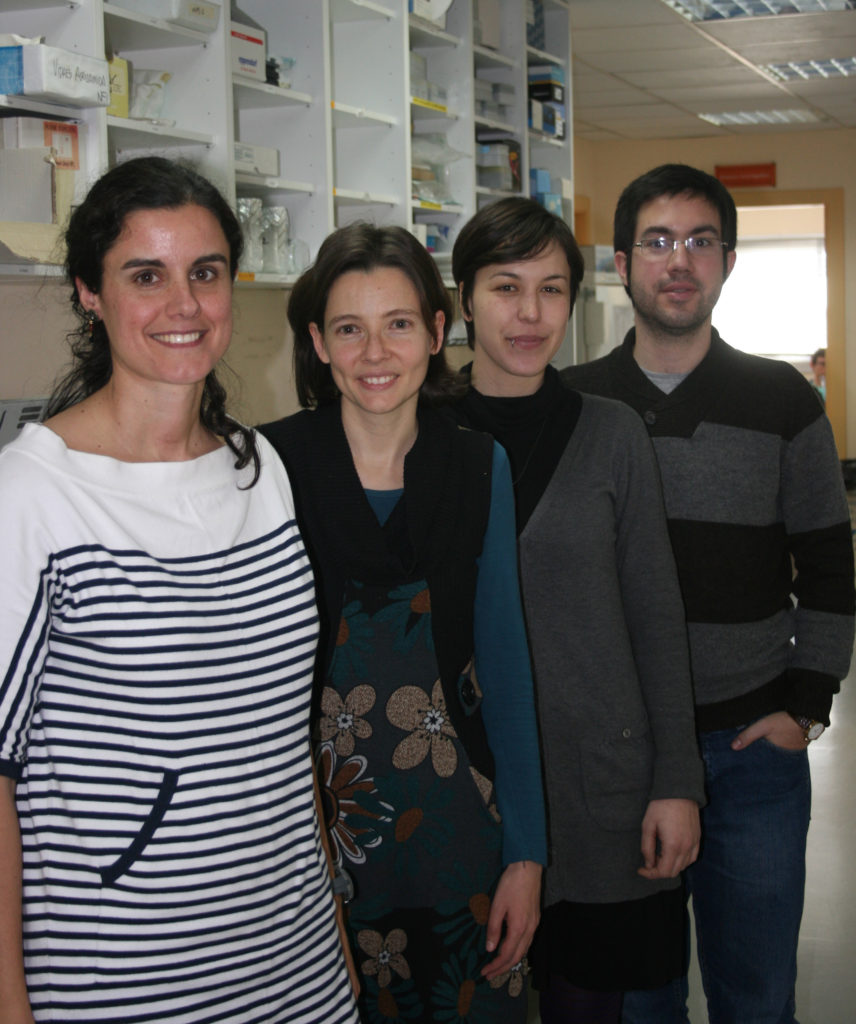PLoS ONE publishes this week a study led by researcher Laura Valle, Hereditary Cancer Program ICO- IDIBELL, which shows that presence of longer telomeres is associated with increased risk of developing cancer in hereditary colorectal cancer without identified genetic cause.
The study involved several members of the Hereditary Cancer Program and Biomarkers and Susceptibility Unit of the ICO- IDIBELL.
Telomeres are regions of non-coding DNA located at the ends of chromosomes and its main function is the structural stability of chromosomes.
This study is closely related to another one by the same group recently published which showed that in families with Lynch syndrome ( hereditary colorectal cancer and mutations in DNA repair genes ) mutation carriers who developed cancer had shorter telomeres and faster telomere shortening associated with age. These data have been able to conclude that the effect of telomere length on the risk of developing cancer in families with colorectal cancer is dependent on the state of the repair system of DNA which is altered in Lynch syndrome and intact in other hereditary cases. Also, this was the first study to evaluate the association between telomere shortening and genetic anticipation observed in families with Lynch syndrome, discarding this mechanism as a cause of anticipation, a hypothesis that it had been considered for years by the scientific community. The study of telomeres and the association with the risk of developing cancer in these families also includes another study led by the same team and with the collaboration of a Dutch group, which identified a common genetic variant in the gene telomerase (enzyme responsible for telomere elongation) as a modifier of the risk of developing cancer in young patients with Lynch syndrome.
Reference article
Seguí N, Guinó E, Pineda M, Navarro M, Bellido F, Lázaro C, Blanco I, Moreno V, Capellá G, Valle L. Longer Telomeres Are Associated with Cancer Risk in MMR-Proficient Hereditary Non-Polyposis Colorectal Cancer. PLoS ONE 2014; 9(2):e86063
Related articles
Seguí N, Pineda M, Guinó E, Borràs E, Navarro M, Bellido F, Moreno V, Lázaro C, Blanco I, Capellá G, Valle L. Telomere length and genetic anticipation in Lynch syndrome. PLoS ONE 2013; 8(4):e61286.
Bellido F*, Guinó E*, Jagmohan-Changur S, Seguí N, Pineda M, Navarro M, Lázaro C, Blanco I, Vasen HFA, Moreno V, Capella G, Wijnen JT, Valle L. Genetic variant in the telomerase gene modifies cancer risk in Lynch syndrome. European Journal of Human Genetics 2013; 21:511-516

